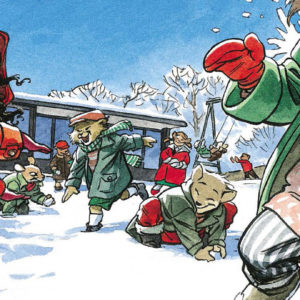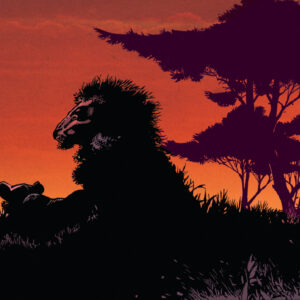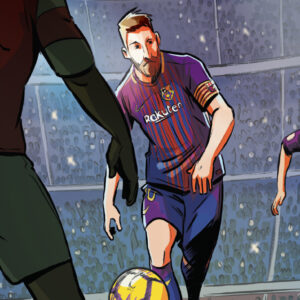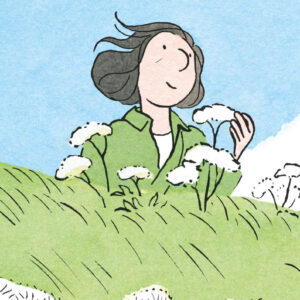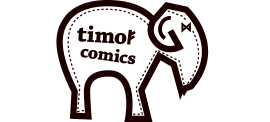Here are twenty inspiring graphic novels and comics series to remind us that if we look for it, we can find beauty in everything. Even in the mundane.
In this nostalgic account, the Faldérault family sets out for a final summer vacation together before an impending marital separation disrupts the family dynamics for good. Along the way, heading south to France from Brussels, Pierre, Maddie, and their children revel in impromptu skinny-dips, family sing-alongs, and camping in the wild, ultimately finding a renewed zest for life—and vacation!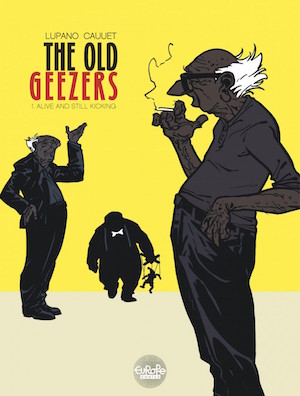
Three old geezers, activists, and lifelong friends reunite at the funeral of the wife of one of them, Antoine, who finds out about a long ago liaison between his dearly departed and the reviled billionaire who owns the factory they all worked in. Livid, Antoine jumps in his car and heads for Italy with revenge on his mind, his two buddies and his pregnant granddaughter following close behind. A chance to reminisce about the past, to fantasize about sticking it to the man, to discuss what’s wrong with the world, to bridge the generation gap, to forgive and forget and settle scores. A wickedly funny geriatric road trip!
The lives of a handful of Parisian characters trying to connect with themselves, their bodies, and each other intertwine in this insightful snapshot of modern society: mothers and daughters, sons and parents, lovers, friends, and neighbors interact and experience each other in ways both simple and profound.
40-year-old Flora has just gone through a bitter divorce after 20 years of marriage. Thankfully, she can count on the support of her friends: Roxane, the cool hippie who loves to garden, Lea, the tireless career woman, and her old neighbor, Venerable. Like her friends, Flora would love to find her soul mate, but it’s just not that simple. She has several promising dates, but once the first flush of passion is over, her lovers seem to disappear into the night. Why does this keep happening? Is she not attractive enough? Is she so difficult to be around? Or is she being sabotaged by someone close to her? A story for the divorced (and perpetually single) 40-somethings who just want to take a moment to catch their breath, and maybe even enjoy their singledom, told through the eyes of Flora and her hilarious entourage.
Marco’s left town for the countryside. He’s left his psychologist because he feels he’s doing better. He’s quit his job as a reporter because he’s had enough of photographing corpses. He gets himself a little cottage in the heart of rural France, where he lives with his cat, Adolf. He throws out all his work, and cuts ties with his employer. That night, he has his first panic attack. It’s not long before he meets the lovely Emilie, and also the wise and good-natured old man who lives in the cottage just across the way… but who, it turns out, isn’t exactly what he seems…
Caroline is a 33-year-old single mom. To help her cope with the difficulties she faces as such in her personal and professional life, she’s a regular at the M.A (mothers anonymous) association, a conversation group for women who are a little overwhelmed by their motherhood. Caroline shares her tragi-comic attempts to find love and companionship, while Philippe, a slightly out-of-place new arrival at M.A., reflects on his status as a ‘dad 2.0’. A funny, intelligent, and moving graphic novel, a touch of chick lit with a feminist twist that comments on one of the big social subjects of our time: the new family model.
Claire is a thirtysomething neonatal nurse who is becoming increasingly discouraged about her prospects of getting into a long-term relationship and starting a family. She thinks she may have finally met her man in Franck—if not a Prince Charming then at least a friendly and compatible person—but societal pressures and gender norms seem to rear their heads at every turn and Claire begins to wonder if it will ever be possible for her to be happy with another person on her own terms. Aude Picault’s chronicle of everyday romance is full of wit and sympathy but it is also backed up by a bibliography of feminist essays and studies of gender relations, offering a valuable and complicated case study of the challenges facing modern women.
Jean and Germaine are the most affable couple the little village of Colle sur Loup has ever seen. A duke married to a commoner, they have no children, no jobs, and are disastrous cooks! They like to indulge in life’s small pleasures; their books, their garden, and their after-lunch naps. They live for each other, and for their love. Their simple happiness intrigues, fascinates, infuriates and is the envy of all those around them. Daniel Pennac knew Jean and Germaine well. He spent his time at their house reading, watching, learning, and, of course, trying Germaine’s catastrophic efforts in the kitchen! He’s now taken it upon himself to tell the story of those happy days, and of a love that has always captivated him.
Aaah, the countryside! Fresh air, green fields, home-grown vegetables… the dream (or the nightmare) of all city-dwellers. Well, this is the tale of when it became Manu Larcenet’s reality. One fine day he and his partner Mariette packed up their urban life and set off for the little village of Ravenelles (population of 89 people, including a pretty baker). When, like Manu, you’ve lived your whole life in a Parisian suburb, the rural life can be quite the shock to the system…
Valentine is a secondary-school student like many others. Her daily life is filled with all the upheavals and self-questioning of adolescence. Self-conscious, she tries to assert herself within a group in which she is “the shy one”. She spends most of her time with her girlfriends, at school or at parties on the weekend. She also tries desperately to get the attention of Felix, the boy she’s in love with – and who has no idea she exists. To make things worse, he’s in the “rival” class to her own… Little by little, this young woman learns to express herself and find her place in the cruel and treacherous world of adolescence, from MP3 players and Japanese mangas, to her first parties and her first whiskey and Coke.
Mrs. Hubeau looks after her 40-year-old handicapped son, Michel. Despite many happy moments, her daily life is far from easy, but she faces it with unparalleled courage and generosity. This is a beautiful homage to all the admirable people fighting in the shadows.
Usually around about the 40 mark, the human male has a habit of leaving his well-worn spouse in search of greener pastures. As they say, the grass is always greener on the other side. Florence Cestac dissects this subject of common interest, from the very first symptoms right up to the final outbreak, via the pangs of “bathrobe-sofa” depression. “You’re the love of my life! But with her, it’s something else… she’s a fairy,” declares our hero with the touching honesty of a male en route to adventure. So once our hero’s skipped off into the sunset with his fairy, our heroine begins asking herself a series of counter-productive questions regarding her general attitude and in particular her cellulite. She then 1). Discovers that everyone else knew about it all along 2). Listens to the questionable opinions of her girlfriends 3). Attempts to rekindle old flames dug out of her old phone book and to kindle new ones in her local DIY store. She explains to her kid that Daddy “just took a little jaunt over to Mars,” which the kid in turn interprets as “Daddy flew to Mars with a slut that Mommy doesn’t like.” She manages to raise her spirits with “tiptopform,” drinks a bit, weeps a lot, and buries the dog who decided to die right in the middle of it all – cherry on the cake. Anyway, she “handles it” and she survives. Between giggles and anguish, this will touch anyone who’s ever felt the sting of that wonderful thing we call love. Disarmingly frank, with endearingly crude humor and a perfect understanding of her subject, this is Florence Cestac on top form.
The touching story of a child getting to know his grandfather, an Italian immigrant living in Belgium. 11-year-old Romeo thinks of his grandfather as nothing but an “old pain-in-the-butt.” So when he finds out that he’s going to have to spend a few days with him at his crumbling old house, without even a TV to keep him entertained… well, it’s his idea of hell. But there are some surprises in store for Romeo during his visit. He changes his mind about a few things, perhaps thanks to his grandfather’s neighbor, Lucy, who tells him about her own “nono,” and shows him how a spoil tip can be a thing of beauty. Or perhaps it’s thanks to Romeo’s dad, who speaks for the first time about his childhood relationship with his father. But it’s mostly thanks to Ottavio who, beneath his old, grouchy exterior, conceals the hard life he has led, full of suffering and sacrifice. It is a life the 11-year-old Romeo finds hard to comprehend, but which gives him a deeper understanding of someone from another century. It started off as just a short holiday to a grey Belgian town. But this holiday turns into an opportunity for three generations of men to lift the silence that surrounds them. A touching story about Italian immigration, coal mining, communication between the generations and the difficultly of opening up when you’ve spent your whole life in silence.
At the age of 8, Jean-Pierre is leading a blossoming life, subject to the rhythm of nature, in a village that provides enough stories and space to feed his child’s imagination. There is the church in the middle of the village – the monument to the dead. A single primary school class, an authoritarian and mustachioed teacher, fights between boys, and slaps from conceited little girls. Jean-Pierre is in love with his mum, as all little boys are, and extremely admiring of his dad, his champion, who is not around enough. This is the year that Jean-Pierre discovers life and how cruel and merciless it is: his parents split up. For this new story, the author tackles a difficult period experienced by the child Jean-Pierre, in an almost autobiographical way. A modest and deeply moving tale.
Norman was a talented sax player in his heyday, until he lost his musical gift seemingly overnight and fled to France. Over thirty years later, with the millennium approaching, he finds himself confronting unresolved questions, a former lover, and diehard fans who have taken obsession to a new level…
A kiosk is a place to have some rest, to have fun, to talk… But it is also a watchtower from where one may stare at the world. Every
morning, the roller blind is raised like hope. This is the small tragedy of a tiny hero, his private adventure in a world that seems to ignore his existence. A lonely person that observes how life keeps on going, without stopping in front of him.
This is a collection of portraits of 7 women, of all different ages, backgrounds, circumstances and eras. Each one of them is facing a defining moment in her life. They are bound together by the symbol of their femininity: their breasts. We see an awkward college girl getting to grips with her womanhood; a 1960s house-wife freeing herself from the restraints of propriety; the manager of a small underwear shop fighting against corporate giants; a woman nude modeling for an unexpected reason… Love, illness, sex, liberation, sensuality: Olivier Pont draws us into the lives of these women with astounding force.
Jean-Paul is a shy, slightly gawky young man leading a rather unremarkable life in which his oppressive mother is all too present. As the anniversary of his father’s death approaches, he feels increasingly dissatisfied with his life, and increasingly aware of his loneliness. It’s time for things to change. So, without telling anyone, he embarks on a singles cruise and takes his first steps in a brave new world.
“Before, there were trees and countryside. Man didn’t intervene. Stalin decided to “rectify” that space, and now, instead of trees, there are concrete buildings, everywhere. Stalin had a factory built. Thanks to that, lots of people got jobs, like my dad.” Born in 1979, Marzi is a 7-year-old Polish girl who looks wide-eyed at the world around her: her parents, her family, her school friends and the crabby women at the grocery store who don’t even smile for a fruit delivery. Marzi lives on a council estate in an industrial town, and is a cheerful, carefree, mischievous and perceptive little girl, bound to run into many adventures!
When the last vestiges of his childhood are taken from him, Zerocalcare discovers unsuspected secrets about his family. Torn between the soothing numbness of the innocence of youth and the impossibility to elude society’s ever expanding control over people’s lives, he’ll have to understand where he really comes from, before he understands where he is going…
Yu Kiang works for a Chinese lumberjack corporation in the Congo. Despite his company’s ban on its employees from frequenting the local girls, Yu has fallen for a Congolese woman, Antoinette… and, in a very different way, for Antoinette’s little daughter, Marie-Léontine. One night, in the arms of his lover, Yu discovers Antoinette’s wound: a terrible scar, an assault on her femininity. How many others are there like her, exiled from their own body, victims of a monstrous ongoing tradition? How many? 150 million. But the only thing that matters to Yu and Antoinette is that little Marie-Léontine never falls victim to the tradition that her mother had to suffer.
When Julien arrives in Michigan to meet his wife’s American family, he gets to know the American Midwest, as well as some unusual cousins. But above all, he meets Odette, his French great aunt with what one might call a resilient personality. Originally from Paris, she married an American soldier at the end of the Second World War. Like her, 200,000 other European “war brides” left behind their families and their countries to be with the G.I.s they loved.
Life isn’t easy for little Brenda, whose single teenage mom is immature, selfish, and prone to violent mood swings. Brenda takes care of her as best she can, missing out on many childhood joys to be her mother’s Little Mama. Sadly, her already challenging existence gets even worse when her mom’s abusive boyfriend moves in. Brenda loves having a new baby brother, but her home life soon turns into pure living hell. Finally she reaches her breaking point, and has to find the courage to save herself and embark on the difficult road towards recovery. A heartbreaking and inspiring tale of abuse and survival.
JH meets Sarah on a dating site. They connect on a regular basis and bring each other to mutual on-screen orgasm. Their exchanges, brief and solitary, eventually obsess JH, who tries to convince Sarah to meet him in person. A strange game of seduction is established between them that compels JH to meet the one sexual challenge – abstinence – that might set something into motion with Sarah. This story is a loose and contemporary variation on the theme of seduction and the emergence of love during this time of hyperconnectivity. Playing skillfully with sexual metaphor and the deafening presence of what is implicit but never spoken, Florent Ruppert and Jérôme Mulot invite us to follow them into a maze of games of love and chance.
By all appearances they are a happy couple. Married, religious, hardworking. What happens behind closed doors, however, is a secret, even to those closest to them. “Kwaśne jabłko” (Sour Apple), written by Jerzy Szyłak and illustrated by Joanna Karpowicz, tells a story of domestic abuse, a story of a victim and persecutor. This story of violence spiraling out of control brings no hope, instead playing on emotions and powerful illustrations, painted with acrylic on canvas-textured paper, to create a unique atmosphere of horror. It is violence as seen by a painter. In truth, no one would like to hear this kind of story, and yet such stories are told, and need to be told. They need to be told because they happen to real people, be they old or young, educated or uneducated, pious or atheist. None of these people wants to take a bite from the sour apple in the basket. However, it happens to some. That is why such stories must be told.
Three friends, their schoolgrounds, a secret. And fifteen years later, the discovery that they all thought there was only one secret, but each had their own. And there was one more, bigger than the others, that none were aware of. This is Zerocalcare’s second graphic novel, the one that made him stand out as an intelligent, delicate, merciless narrator when it comes to describing his own weaknesses, which may be everyone’s. A complete story in three parts at different times in the coming of age of young Calcare; three moments that have in common the all-too-familiar feeling of having tentacles at the throat.
Javi has left Spain for Berlin. He doesn’t speak German and hardly knows anyone there. He wants to be a comic book artist, but all his friends advise him to find a real job. He desperately needs to believe in himself, and to be believed. Burning with the desire to leave his mark, yet patient like any professional observer, Javi tells the story of his world, which becomes his first comic.
Sun is the story of a little boy and his mother. The child is the result of a drunken roll in the hay the mother has after a fight with her family. Filled with shame and guilt, the mother is incapable of showing the child love and affection. Her father, the boy’s grandfather, sees the boy as the son he never had and the heir to his fortune. He takes care of the boy and the bond between the two grows very strong. But the day comes when grandfather dies. In an effort to get rid of the boy, he is told to take his demented grandmother for a stroll. And that’s when the accident happens. The boy is charged with murder and ends up in jail. The mother is relieved to be rid of him and shows no intent to defend him. And that’s when the boy’s father shows up. The mother had bribed him to keep his mouth shut, but he cannot fail his son now. He helps the boy escape, but the police catch up with them. Will they get away?
Elena is losing Jorge, and she doesn’t know why. They’ve been living together at Jorge’s parents’ house for some time now, and so far, everything between them had seemed to be going well. But recently, Jorge has been spending less and less time at home. Elena isn’t sure what to make of his absence, and one day, she decides to leave. “Seven Places Without You” is the story of a young couple’s first experience of a relationship on the rocks; a story that allows time to elapse and silences to lengthen, focusing more on how events develop than on the events themselves. It’s also the story of the spaces where these events occur: the seven places of the title, and of Jorge’s absence.
Gabriel dreams of buying back Malaterre, an estate built by his ancestors in the heart of the jungle over a century ago. Of going there, living there, and restoring the Lesaffre family honor. Of passing it on to his children. But he knows nothing about the country or managing a timber forest. He will have to risk it all, taking his two eldest with him and separating them from their mother and younger brother. All of this, of course, is completely crazy.
Ulysses, a middle-aged widower, is forced into early retirement from his moving job. At a loss for what to do next, the course of his life is changed by a chance encounter with a fellow lonely soul at, of all places, his son’s OB/GYN office. Mediterranea, who recently lost her mother, runs a cheese shop that she took over when her beloved Corsican father died years earlier. A romance blossoms between these two people who are supposedly in the “autumn” of their lives and they soon find themselves embarking on a most unexpected odyssey.
Almost everyone makes it to fifty these days. And so did John. When his daughters give him a ticket to Rome, he decides it’s time to conquer his fear of flying once and for all. But on the plane home he loses consciousness, and in the hospital he gets devastating news: he has colon cancer. What follows is a roller coaster of emotions, with ups and downs and newfound love… helping John realize just how much life is worth fighting for.
Eighty-five-year-old Marcel lives alone with his memories of World War II — his short-lived days as a soldier before his capture and imprisonment by the Germans. He’s got one thing left to do before he dies: find the bugle he buried by the Maginot Line. When his granddaughter Andrea stops by with her burgeoning rural taxi business, he hops a ride to the site of his regiment’s defeat… only to find things have changed. This is Alexandre Clérisse’s fierce, tender, and timely rumination on the horrors of war and the lies we tell ourselves.
Three young women lacking direction struggle with the challenges of life and relationships: Violet has dumped her boyfriend and is finding it hard to move on; Lila has betrayed her best friend and finds herself now ostracized by her social circle; and Helen struggles to find a balance between her personal life and the doctoral thesis taking up all her time and energy. A realistic slice-of-life portrayal of the growing pains of young adulthood.
Manuel and Mia live together in Bologna, in a house that is so crowded they have a roommate they’ve never seen. Mia is almost thirty, hates her job, and has a deep desire to dig into life before it’s too late—before becoming hopelessly adult. Manuel is publishing a serial novel online about courtly love, which he hopes might one day find a publisher. Mia and Manuel have dreams, but are unhappy. They don’t know how to face the void created between them. They’re losing themselves, even though they love each other. If they’re to straighten things out, they must find the right measure.
Hans Wagner decides to move with his wife Katie and daughter Lisa from Germany to Nigeria, where he has been offered a well-paid job. The lifestyle that comes with it is a nice extra: they’ll have a housekeeper, there’s a good international school, and their daughter will even be able to join a horseriding club. However, shortly after their arrival in Lagos it turns out that life there is less paradisiacal than they’d hoped…
Rose is not a happy young woman; she is closed off and angry and she hates her job. But her life changes drastically when she inherits her father’s bakery in a small town in Brittany. Returning to a place that brought her both joy and grief forces her to confront painful memories of her past and find the courage to open her heart to a new, happier life that awaits her if she will just let it. A story about new beginnings, filled with small town charm, delicious pastries and the warmth of home and friends.
“Girls, living in the country will be your chance,” her parents tell her. And so Catherine Meurisse spends her childhood outdoors. Construction all around her: an old farmhouse renovated into a home, trees planted, a garden created, dreams cultivated. They dig, they graft, they plant a rosebush “adopted” from Montaigne, a fig tree from Rabelais. They observe the tumult of the outside world: new developments in industrial agriculture, the citification of rural France… With her characteristic humor, Catherine Meurisse has composed a witty poem dedicated to the countryside where her vocation as an artist first took form. The Great Outdoors, like Lightness, her previous album, is a testament to her conviction that nature and art —everything that grows, everything that lives against all opposition— always offer us a chance.
1907: In a small town in the Pyrenees, a young soldier regularly climbs one of the tallest peaks to deliver supplies to an observatory. There, he makes a friend whose great passion for the Tour de France pushes ambitious Amédée to take up cycling and dream of winning the Tour himself. But the road to the Tour de France is more challenging and dangerous than he thought, and a terrible accident leaves him handicapped. Still, Amédée remains undaunted and trains even harder, which sets him on the road to cycling stardom… until war breaks out and interrupts his plans yet again. An inspiring tale of courage and human achievement, set against the fascinating backdrop of one of the world’s most grueling tests of endurance.
Amalia is on the verge of burnout. Her family life—with her husband, Karim; her 4-year-old daughter, Lili; and her 17-year-old stepdaughter, Nora—is nothing but rushing around, screaming, and doors slamming. At work, they talk about agility, flexibility, and adaptation, but her workload is slipping away from her. As she drives through the countryside, she sees diseased wheat fields and polluted rivers. She can’t even listen to the radio without some new story about deadly attacks and a dying climate. Amalia struggles, tries, fails… and eventually, she cracks.
Header image: The Great Outdoors © Catherine Meurisse / Dargaud
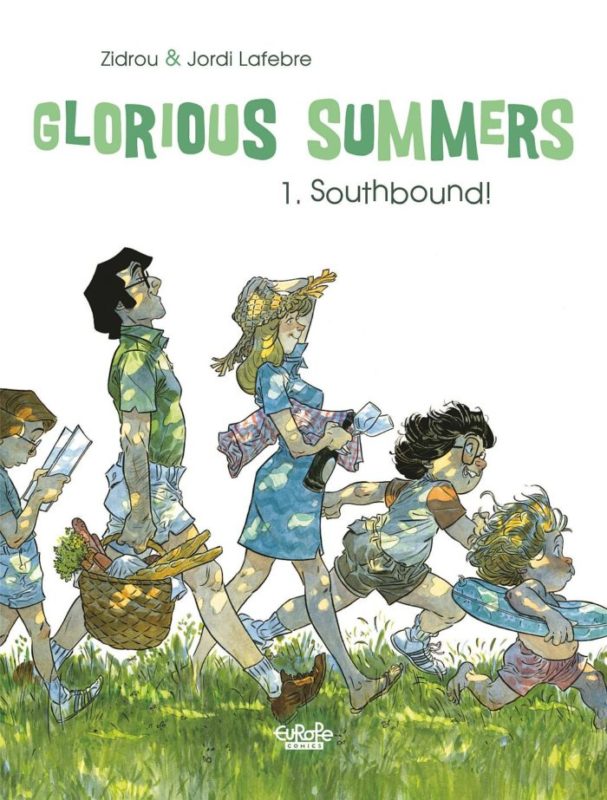
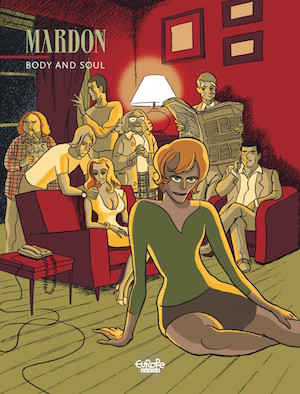 Body and Soul
Body and Soul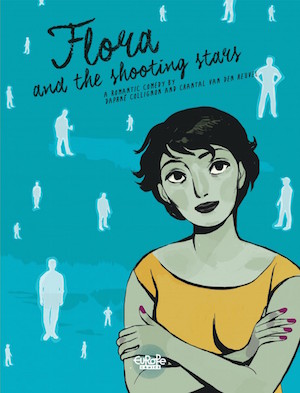
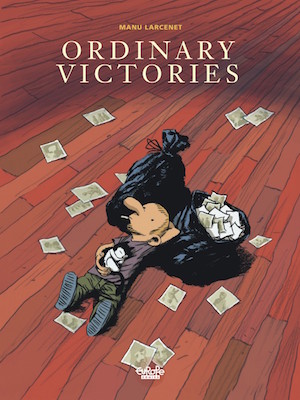 Ordinary Victories
Ordinary Victories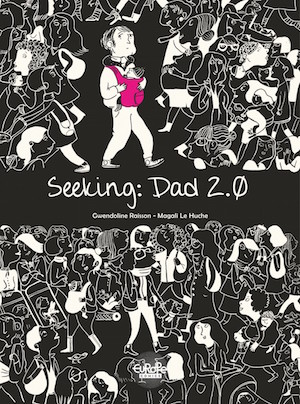
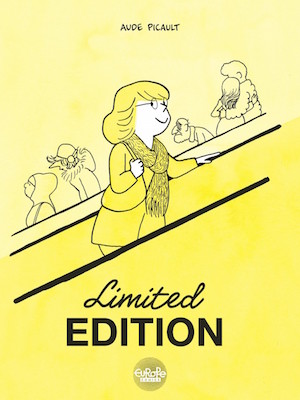 Limited Edition
Limited Edition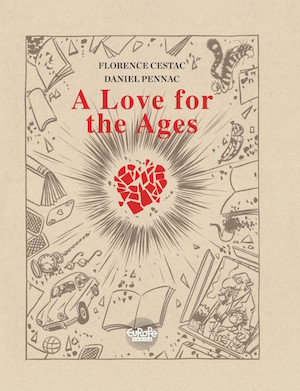
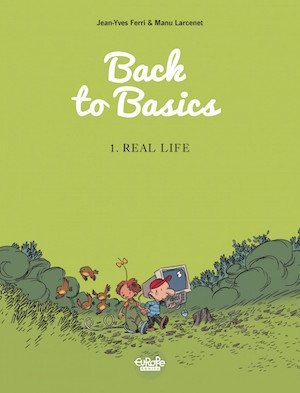 Back to Basics
Back to Basics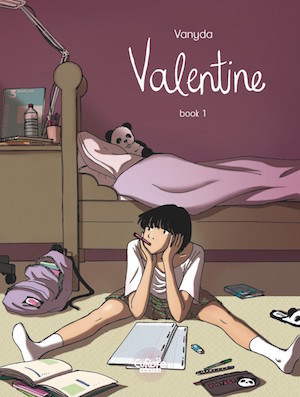
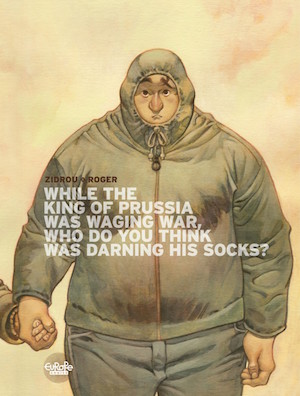 While the King of Prussia…
While the King of Prussia…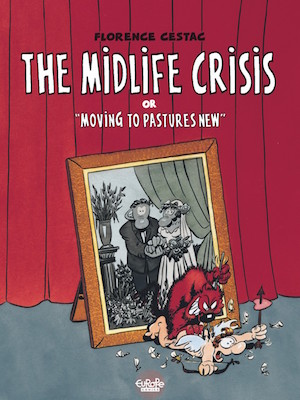
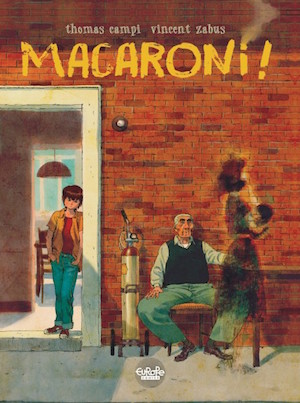 Macaroni!
Macaroni!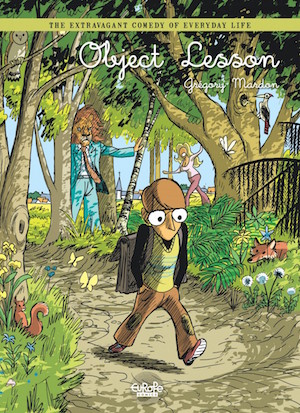
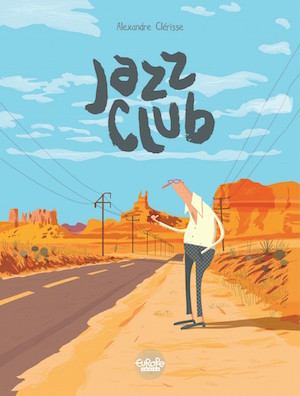 Jazz Club
Jazz Club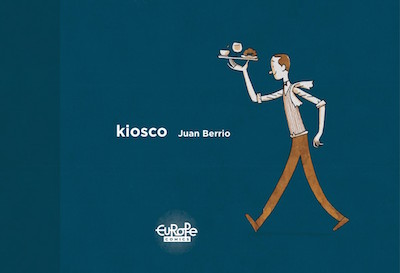
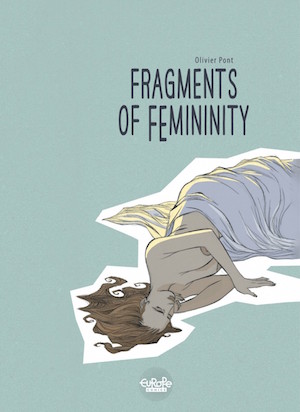 Fragments of Femininity
Fragments of Femininity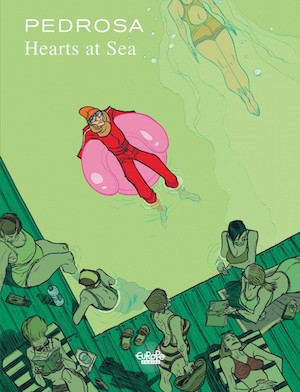
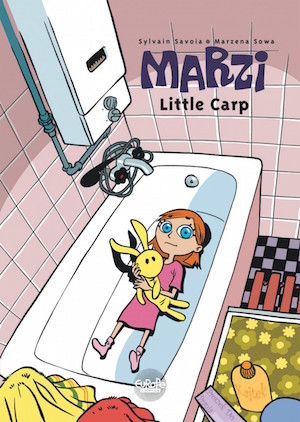 Marzi
Marzi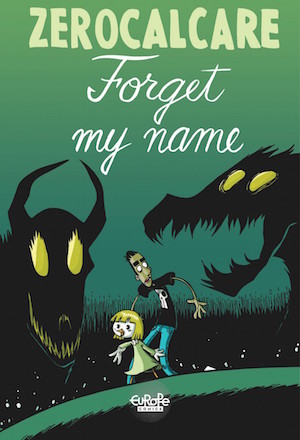
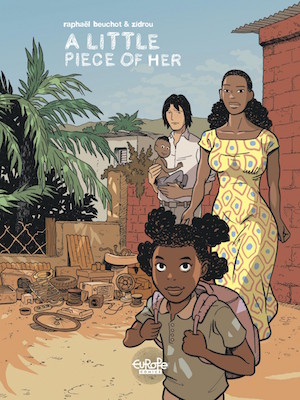 A Little Piece of Her
A Little Piece of Her
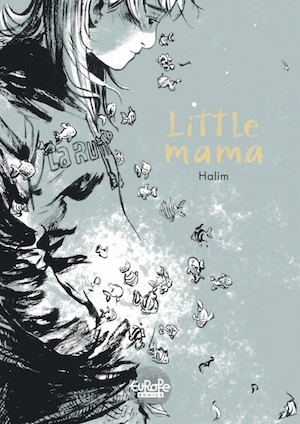 Little Mama
Little Mama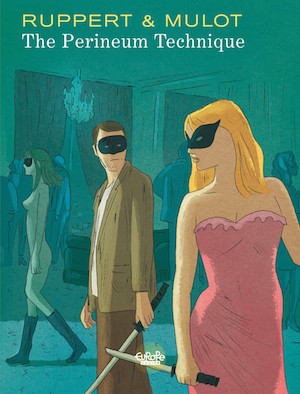
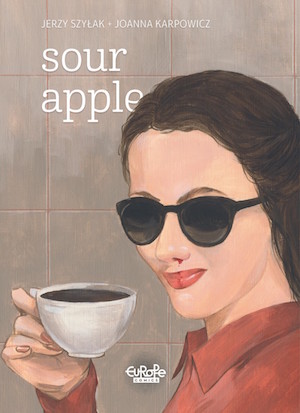 Sour Apple
Sour Apple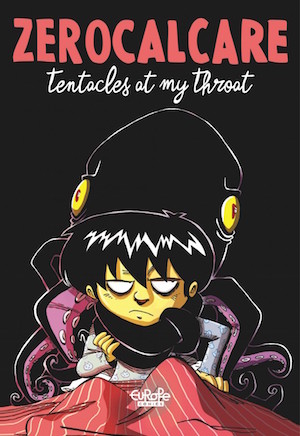
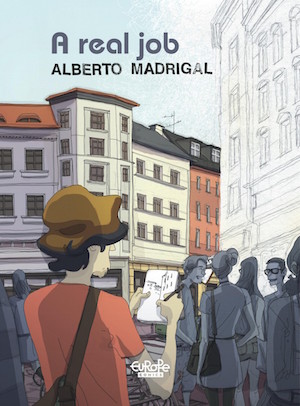 A Real Job
A Real Job
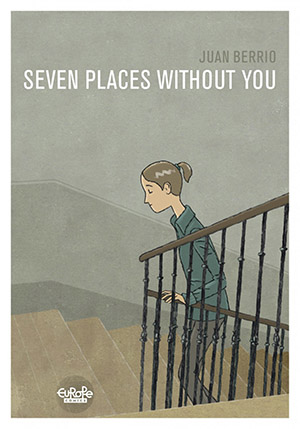 Seven Places Without You
Seven Places Without You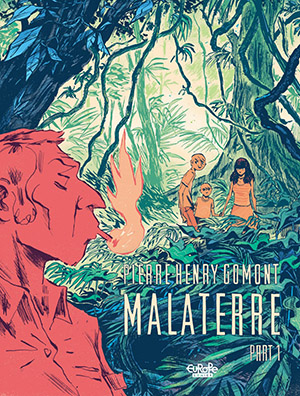
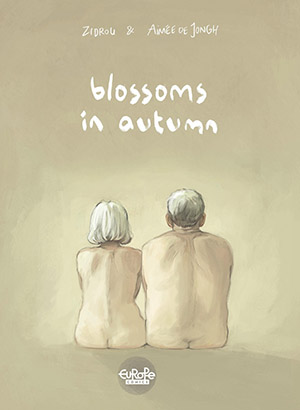


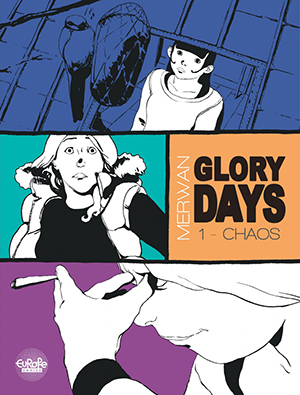
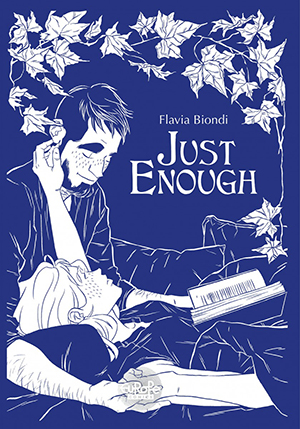
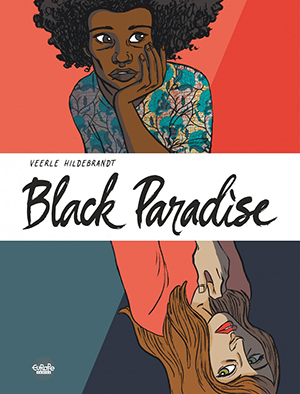
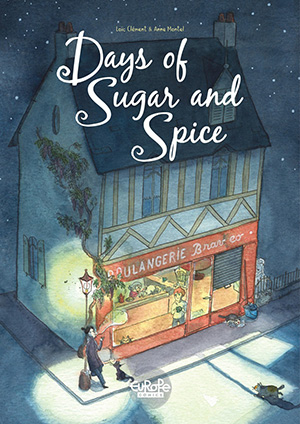 Days of Sugar and Spice
Days of Sugar and Spice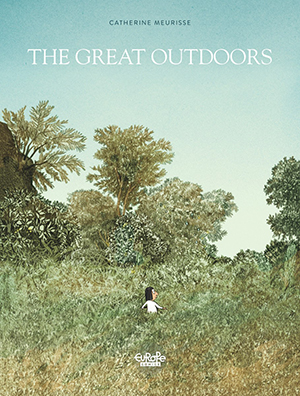 The Great Outdoors
The Great Outdoors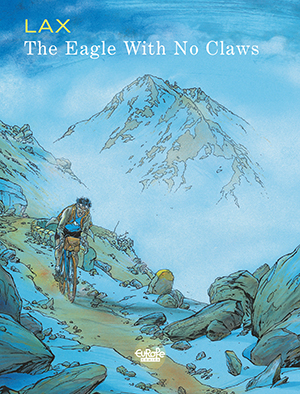
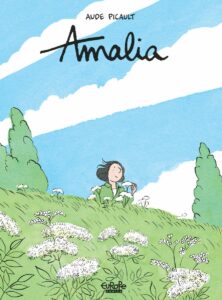 Amalia
Amalia